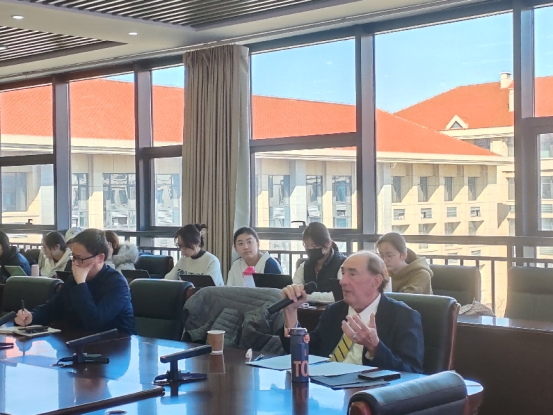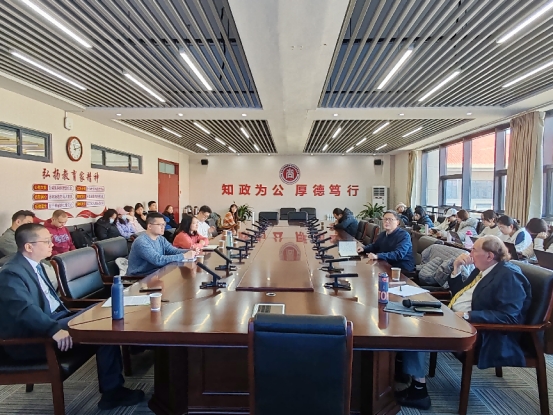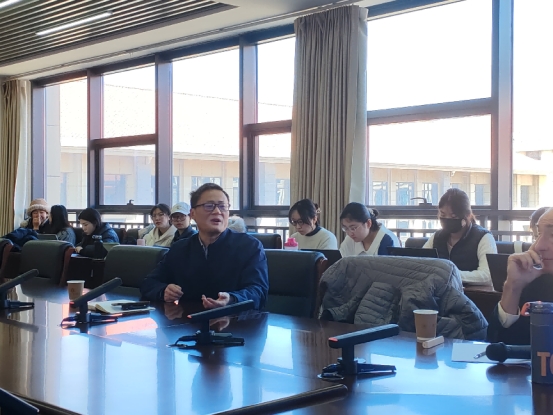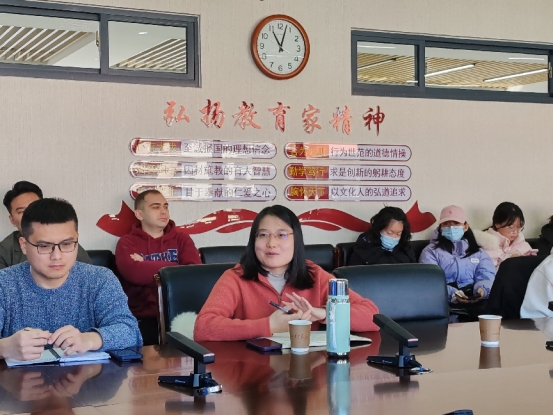On the morning of February 24, 2025, the 22nd lecture of the Cooperation and Development series, jointly organized by the School of Political Scienceand Public AdministrationatShandong University,the Institute of SCO Studies ofShandong University, the Institute for Public Safety ResearchofShandong University, and the China-SCOInstituteof Economics and Trade, was successfully held in the meeting room on the fourth floor of HuagangyuanSouth Building. The theme of this lecture is "The BRICS Countries after the Kazan Summit: Problems and prospects", and Professor Georgy Toloraya, Chairman of the Russian National BRICS Research Institute,has giventhelecture. ProfessorEdmund Li Sheng, Distinguished Professor of the School of Political Science and Public Administration of Shandong University and Executive Director of thethe Institute of SCO Studies, presided over the lecture. Nearly 40 teachers and students from the School of Government and Management participated in the academic exchange and discussion.

At the beginning of the lecture,Professor Georgy Toloraya presentedRussia's key achievements during its 2024 BRICS presidency. He then analyzed the ongoing transformation of the global governance system from a Western-dominated unipolar order to a multipolar configuration, with BRICS emerging as a significant driving force. Professor Toloraya provided an in-depth examination of BRICS' evolving position in the global system, tracing its developmental trajectory while outlining the bloc's primary objectives and strategic directions.In conclusion, Professor Toloraya identified several critical challenges confronting BRICS: establishing itself as a geopolitical counterbalance to the "collective West," preventing conflict escalation, formulating and implementing future-oriented strategies, building an inclusive system with Western nations, and creating a more equitable international financial and economic architecture. These challenges reflect both external pressures on BRICS' development and the growing urgency for enhanced internal cooperation.

During the interactive session, faculty and students engaged in vibrant discussions on topics including AI's implications for BRIDS' future development and concrete pathways for establishing a new order within the global financial system. Discussant Dr. Zhu Linxu emphasized BRICS' need to develop common AI governance frameworks to circumvent limitations imposed by Western-dominated technical standards, while simultaneously advancing a more equitable and inclusive technological development paradigm. ProfessorEdmundLiSheng expressed appreciation for Professor Toloraya's visit and insightful presentation, noting that the lecture provided valuable perspectives for understanding BRICS' evolving dynamics. He encouraged continued academic engagement with BRICS' growing global influence and transformation.


This lecture offered participants comprehensive insights into BRICS' coordination mechanisms and strategic interests following the Kazan Summit, serving as an important platform for understanding the bloc's efforts to promote multilateral cooperation and enhance geopolitical influence in global governance. The School of Political Science and Public Administration at Shandong University remains committed to providing high-quality academic resources for its faculty and students, both domestically and internationally. We encourage continued attention to the school’s updates and the "Cooperation and Development" lecture series organized by the InstituteofSCOStudies.
